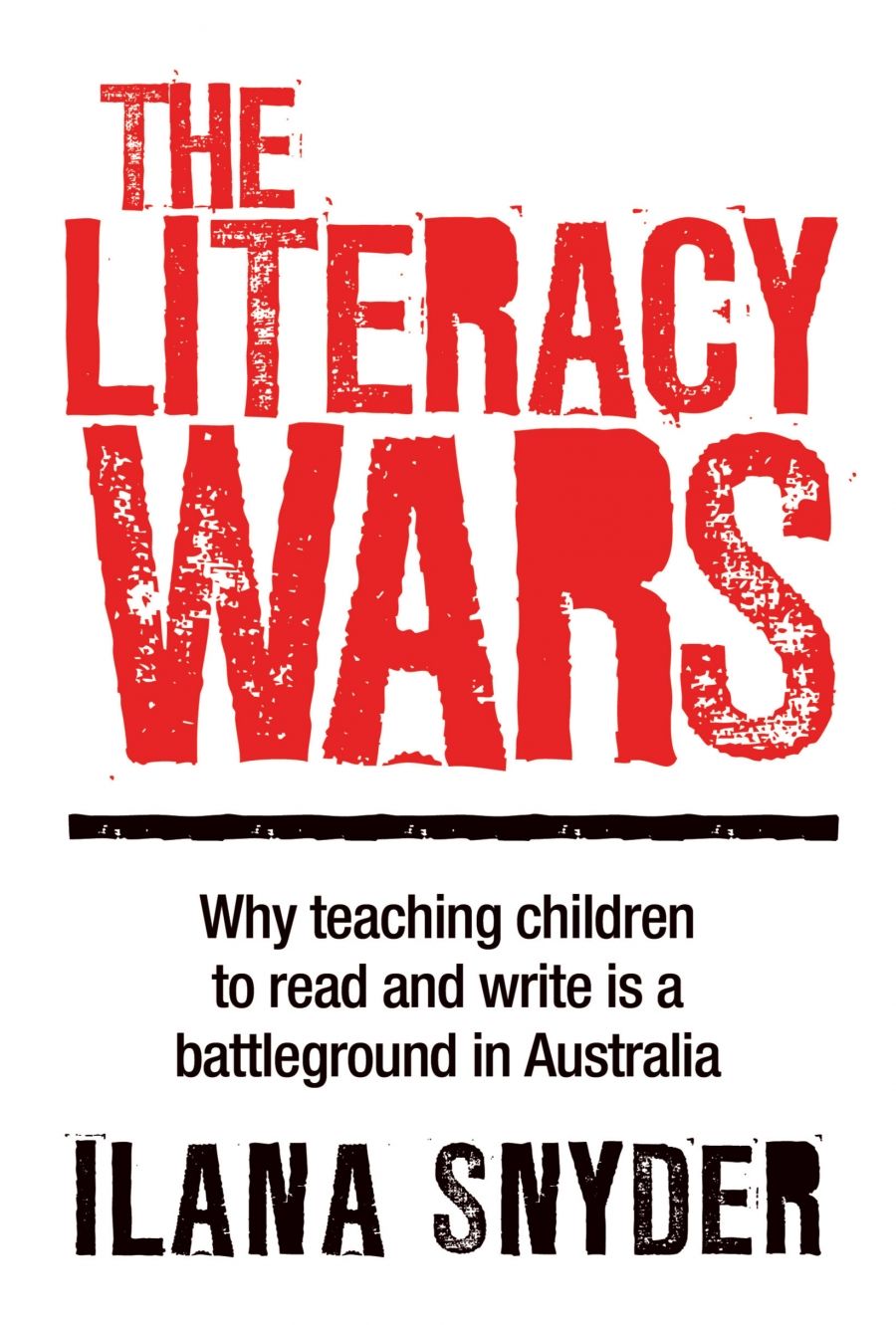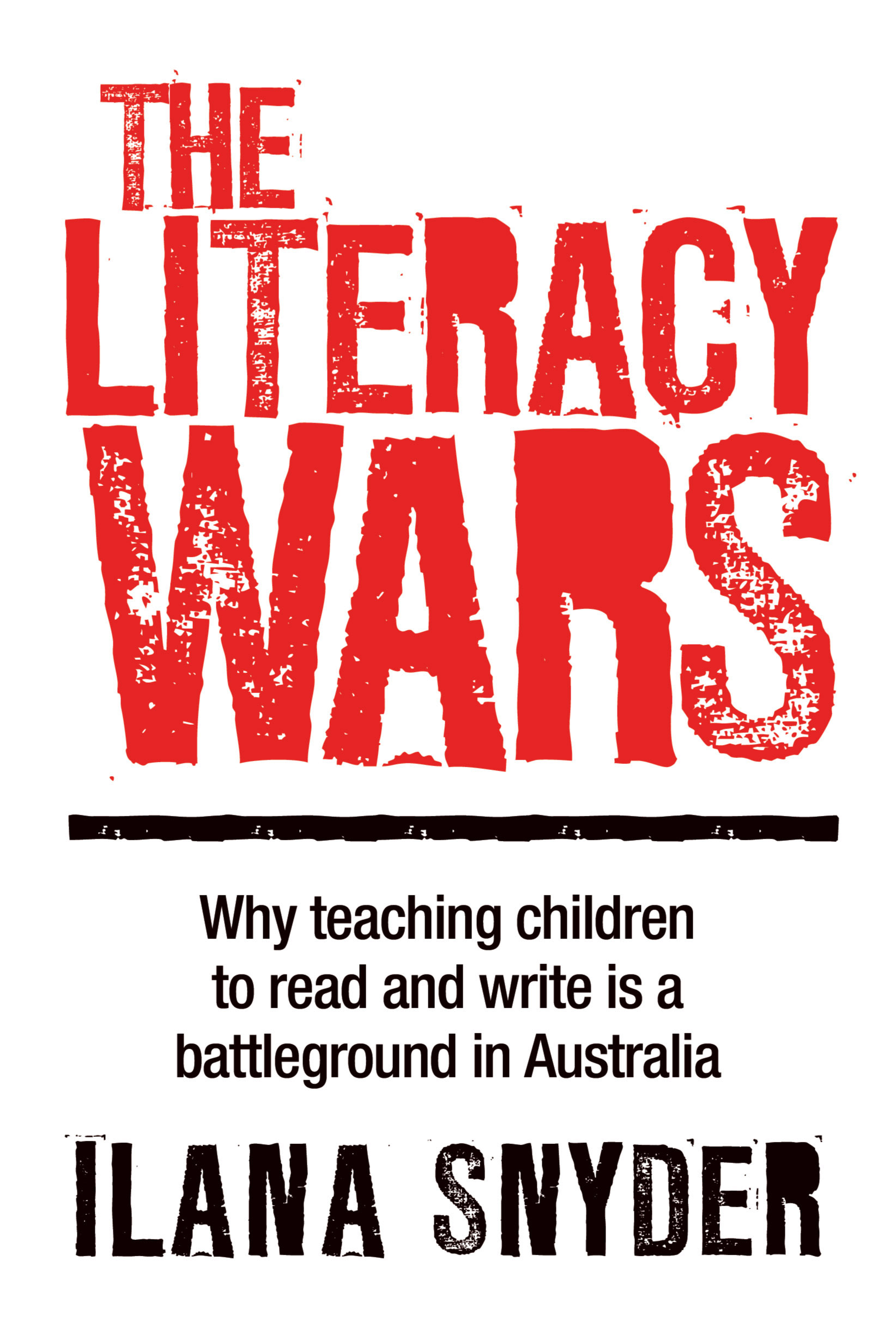
- Free Article: No
- Custom Article Title: Would of, should of
- Review Article: Yes
- Article Title: Would of, should of
- Online Only: No
- Custom Highlight Text: Ilana Snyder, an associate professor in Monash University’s Education Faculty, writes in The Literacy Wars of Paulo Freire speaking in Fitzroy Town Hall in the 1970s. I remember him too. In 1974 he spoke in a University of Melbourne lecture theatre crammed with Diploma of Education students. Snyder was ahead of my class of 1974: by then she was teaching English.
- Book 1 Title: The Literacy Wars
- Book 1 Subtitle: Why teaching children to read and write is a battleground in Australia by Ilana Snyder
- Book 1 Biblio: Allen & Unwin, $32.95 pb, 248 pp
- Book 1 Cover Small (400 x 600):

- Book 1 Cover (800 x 1200):

Soon afterwards, Freire was being quoted freely as phonics was excommunicated from the reading curriculum and replaced by ‘whole-language’. Children could, indeed should, learn to read by pretending and guessing, we were told. It was wrong, even oppressive, to teach the sounding out of letters. But when some children, often of highly literate parents, started to have reading problems, doubts were raised, only to meet with fierce opposition from whole-language proponents. Literacy was about so much more than learning to read, they said.
Thirty years on, there is still debate about the teaching of literacy and disagreement about the definition of the very word itself. The title of Snyder’s book suggests that the reader is going to be offered an informative overview of the arguments. The attractive simplicity of the phrase ‘teaching children to read and write’ promises clarity within the covers, perhaps an open exploration of exactly why parents, teachers, employers and governments have become so worried about literacy. But despite Snyder’s championing of the postmodern concept of ‘critical literacy’ that is supposed to promote political freedom, there is little room in her thesis for the truly disadvantaged who struggle to acquire the most basic building blocks of reading and writing. Her arguments leave one with the impression that those who want children to be taught to read and write as correctly as she herself does are mistaken at best and dictatorial at worst. She wheels out the postmodern pantheon as authority: Derrida, Foucault and Lyotard, and gives them a far better précis than they deserve in the context of this book. Surely, with something as important as literacy, it’s time to give that narcissistic old Parisian clique a rest and let scientifically based research shine some light into Australia’s teacher-training courses.
Max Coltheart, the president of Learning Difficulties Australia, director of the Macquarie Centre, and recipient of the current CSIRO Eureka Prize for Scientific Leadership, really deserved more than the brief, dismissive half-page he gets here. Work such as his, based on solid long-term scientific research into brain function, makes powerful evidence-based arguments for the inclusion of phonics as part of teaching children to read. Indeed, for some children, it is crucial that phonics be used: skipping this first step disables them and puts them at a terrible disadvantage. Snyder’s treatment of the whole-language versus phonics debate is one-sided: you could come away from The Literacy Wars thinking that phonics advocates wish to exclude any other kind of methods. Yet teachers of phonics usually say they use it as part of a multi-faceted approach to each student’s particular needs.
Back in 1974, my first exposure to ‘literacy wars’ happened when I took examples of Year Nine work from my teaching round to an English Method seminar in Melbourne’s Dip.Ed. ‘B’ course (where you learned about Freire and A.S. Neill, instead of Piaget and Montessori). How did one explain to nice, ordinary western-suburbs students why they needed to write ‘would have, could have and should have’ instead of ‘would of, could of, should of’? It was the old phonetic error derived from the contraction of have to ’ve and thence to of. These kids didn’t know auxiliary verbs and prepositions. There had to be a good way to help them understand, engagement with their needs at their level – right? No, said my lecturers. Don’t correct it: that’s patronising them. You’re not respecting their working-class lingo. I came away thinking that this was rubbish, that Freire would certainly have helped them find out the information, instead of leaving them in ignorance. Teaching wasn’t about withholding information, was it?
Whatever teaching is, or should be, about, The Literacy Wars is a highly partisan attack on targets, some of which are straw men. The now defunct Howard government is one. Those who want to teach the Western canon are portrayed as insisting on rote-learning and mindless tests. Other targets include all those who advocate the use of phonics alone to teach reading, rare indeed as those are. Those even rarer teachers who won’t include e-mails, movies, text messages and video games as part of their curriculum are also criticised. We are told that laptops, mobile phone texting, PowerPoint presentations and e-mail change the nature of literacy (LOL), but not how. Predictably, Kevin Donnelly and Luke Slattery are dragged out for censure (when, for once, Donnelly got it right).
In the end, The Literacy Wars amounts to an obstinate defence of teacher-training courses’ persistent failure to teach teachers how to teach children to read and write. The need for an empirical rather than ideological approach to literacy is urgent, but it is a need not met by this book.


Comments powered by CComment